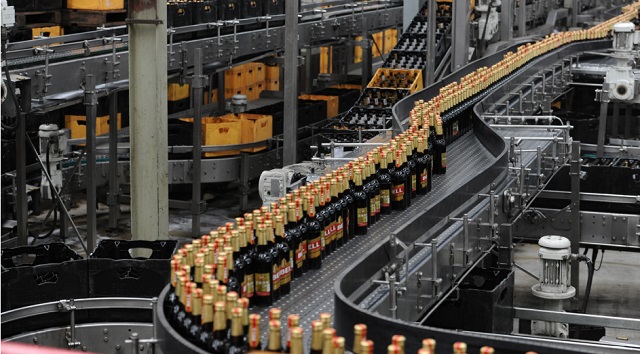
East African Breweries Limited (EABL) recorded 15% growth in revenue to Kshs86.0 billion for the year ended June 2021.
| THE INDEPENDENT | Profit before tax was up 2% to Ksh10.9 billion. The slower profit growth rate was driven by the impact of cost inflation, adverse foreign exchange impact and tax charges.
EABL’s profit after tax for the period declined 1% to Kshs7billion mainly impacted by cost inflation, tax and foreign exchange impact. EABL’s performance was delivered on the back of a tough operating environment.
The company responded with agility, leveraging changing consumer behaviour and channel shifts, especially around e-commerce, home delivery and take-home trade, executives said.
Market sales performance
Kenya Breweries Limited (KBL) registered 10% year on year revenue growth, with H2 growing 45% off-setting a 10% decline in H1.
This performance was driven by expanding and adapting the product portfolio to meet emerging channels and new consumer occasions while continuing to invest ahead on our strategic brands.
Uganda Breweries Limited (UBL) revenues on the other hand grew 33% year on year, with beer and spirits both recording double-digit growth.
Growth was driven by the business’ agility in response to the changing consumer shifts and emerging channels. The business also invested in capacity expansion to support sales growth in line with EABL’s strategy.
“The closure of bars and entertainment venues, and other restrictions necessitated by measures to curb the spread of the COVID -19 pandemic, affected not only our customer base but also led to both local and global supply disruptions, for our produce and for raw materials that we need in our production processes.” Said Alvin Mbugua the UBL managing director.
Mbugua added that the tax burden bore by the regulated and licensed alcohol beverages sector and the illicit and unregulated sector continues operating tax free continues to eat into the profit margins of the industry.
“We continue to engage government and other stakeholders to improve the operating
regulatory and tax environment as well opening up dialogue with the different stakeholders
to identify and tackle issues rising from illicit trade, key of which is cost of revenue to the
government through missed taxes,” Mbugua said.
Going forward, Mbugua said the 30% levy on beverages produced using local raw materials is steep considering the annual investment the industry makes in farming communities in Eastern, Northern and South Western Uganda where Uganda Breweries alone contributes more than Shs30billion annually.
According to a report by EuroMonitor International, a market research firm, in the year 2020, due to the ongoing pandemic and restrictions on gatherings, as well as pubs and bars closures, consumption of illicit alcohol recorded increased growth and accounted for 64.7% in volume terms in 2020.
This accounts for 50% of all Alcohol market value, growth from 31% in 2017. There is therefore need for the government to widen its tax base by extending taxation and regulation to this market.
Uganda Breweries Limited, which this year celebrates 75 years of operations saw a 33% growth on their beverages driven by their flagship Beer and Spirts, Bell Lager and Uganda Waragi respectively as the business adapted quickly to the times to respond to changing consumer shifts.
The positive results are also a result of heavy investment in capacity expansions in packaging lines and filtration plants at Uganda breweries which have increased production efficiency
In Tanzania, Serengeti Breweries Limited (SBL) revenues were up 16%, with beer and spirits both registering double-digit growth. The business sustained strong growth through investment behind the brands and capacity expansion for both beer and local spirits production.
Further, the COVID-19 related tax reliefs in Kenya on corporation tax and VAT ended in December 2020, resulting in higher tax charges for the year as the rates reverted back to pre-COVID levels.
The company’s key priority has been to ensure the safety and well-being of its people by providing necessary tools and resources to ensure they are adequately enabled to work safely.
EABL Group Managing Director and Chief Executive Officer, Jane Karuku said, through fiscal 2021, the pandemic continued to impact the business negatively across East Africa due to the restrictions in Kenya and Uganda and the general decline in disposable incomes in the region.
“We responded to the new realities by continuing to invest behind the brands, expanding capacity and sustaining productivity initiatives to
manage our cost base to ensure we emerge stronger,” Karuku said.
Looking into the future, Karuku added: “We are cognisant of the fact that the uncertainty posed by the pandemic will continue. However, we are confident that our strategy is working and will continue to focus on business recovery to grow top line and recover margin.
****
 The Independent Uganda: You get the Truth we Pay the Price
The Independent Uganda: You get the Truth we Pay the Price



